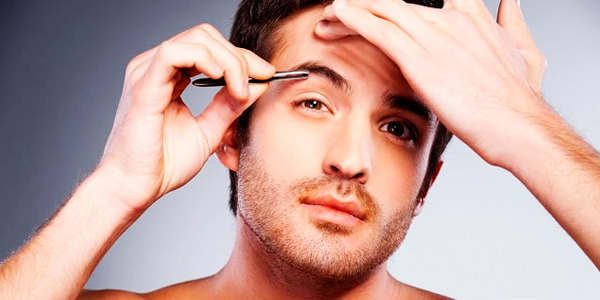If you fancy yourself as someone who’s with the times then you would have surely heard about the metrosexual: a man who is just as tough on the inside as the superceded macho man of the 80s, but with a softer edge. The metrosexual isn’t a repackaged Sensitive New Age Guy either. Unlike SNAGs, his preoccupation is with himself and his own appearance, rather than worrying about the state of the environment and other New Age agendas. The metrosexual is everywhere and increasingly, products are being marketed to take into account this new breed of man. Could you be living with a metrosexual?
So what exactly does it mean? The term was first coined in 1994 by journalist Mark Simpson who described the metrosexual as: “…a young man with money to spend, living in or within easy reach of a metropolis – because that’s where all the best shops, clubs, gyms and hairdressers are. He might be officially gay, straight or bisexual, but this is utterly immaterial because he has clearly taken himself as his own love object and pleasure as his sexual preference. Particular professions, such as modelling, waiting tables, media, pop music and, nowadays, sport, seem to attract them but, truth be told, like male vanity products and herpes, they’re pretty much everywhere.”
And what makes a metrosexual man? He’s been defined as a sensitive, well-educated, urban dweller who is in touch with his feminine side. He may have a standing appointment for a weekly manicure, and he probably has his hair cared for by a stylist rather than a barber. He loves to shop, he may wear jewellery, and his bathroom counter is most likely filled with male-targeted grooming products, including moisturisers (and perhaps even a little makeup). He may work on his physique at a fitness club (not a gym) and his appearance probably gets him lots of attention — and he’s delighted by every stare. Soccer superstar David Beckham has been described as the ultimate metrosexual. He may well be a highly respected athlete, but he wears sarongs and nail polish, and has even posed for gay magazines. As the American online magazine Salon said, he has admitted that he likes to be admired, and does not care if it’s by women or by men.
Indeed, many men probably do admire Beckham and envy him for more than his million-dollar soccer contract. His wife undoubtedly enjoys his company not only as a husband but also as a shopping companion.Speaking of shopping, the rise of the metrosexual is the reason why major fashion labels, which up until recently focused on women’s clothes, have got exclusive men’s lines with separate ad campaigns that frequently grace the pages of GQ, FHM and other men’s mags. Between pages of heaving cleavages, are labels, labels and more labels. It seems a lot of guys are curious about the summer collection from Calvin Klein and what colours Ralph Lauren is bringing shirts out in.
But is the average Aussie ’bloke’ really ready to transform himself into a metrosexual? Certainly the marketing gurus are all on the job to encourage such a transformation. Consider Sunsilk’s latest shampoo offering which is a range specifically designed for men. The range was launched with a somewhat amusing television ad featuring a number of ostensibly blokey Collingwood players extolling the virtues of hair care. Will it encourage the Aussie bloke to use the product? I guess the sales figures will be telling, but first and foremost, you can count on most guys thinking that the big men at Collingwood need to focus on things other than shampoo if they want something to really get excited about next year. Go the Pies…



